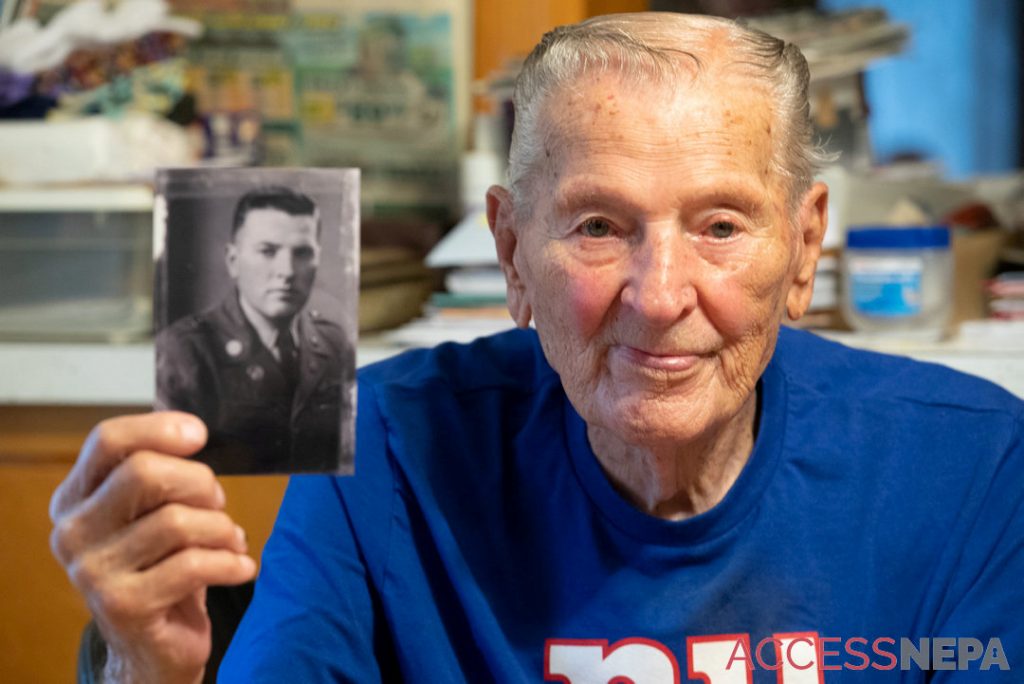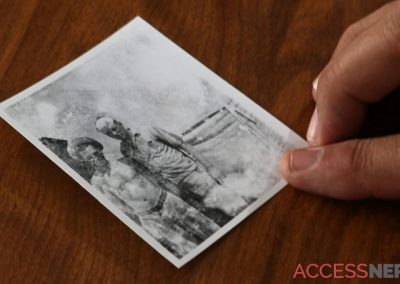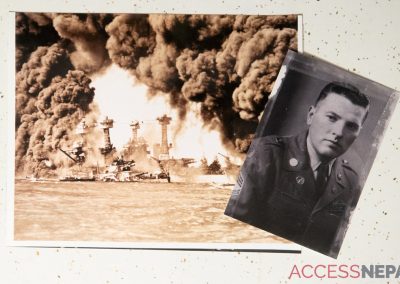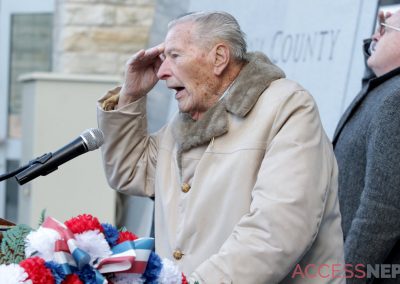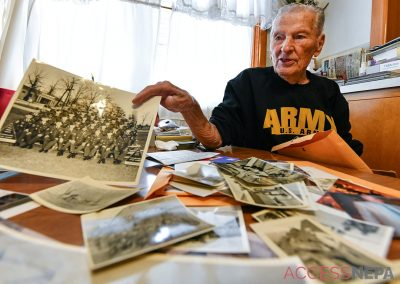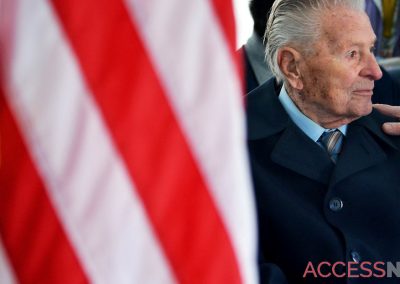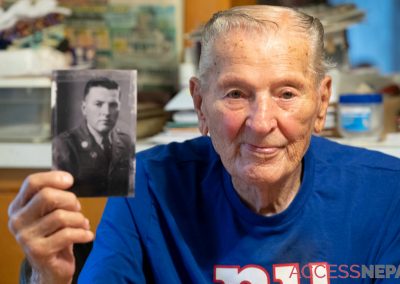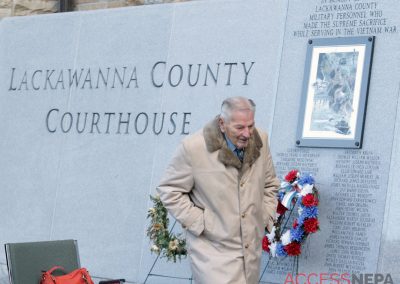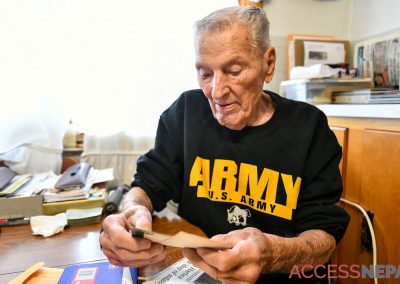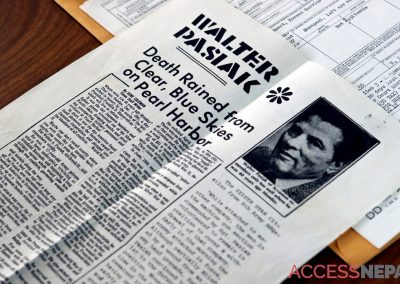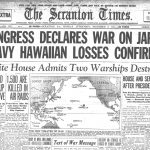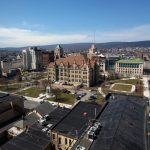As a 19-year-old Army private, he grabbed the only available weapon — a rifle — as he tried to defend the U.S. fleet at Pearl Harbor.
Three years later, in New Guinea, he helped secure a Japanese airfield, fighting at Hollandia on the north coast of the island and earning the Bronze Star.
As the last known survivor of Pearl Harbor residing in Lackawanna County, Pasiak taught younger generations about service and sacrifice.
He died Sunday as a war hero, loving uncle and connection to the past.
The 98-year-old South Scranton resident remained independent, driving and living on his own until November, when he tested positive for COVID-19. Other health issues arose during his recovery, and hopes of his return home diminished.
“They call his generation the greatest generation, and I think it was,” his niece, Diane Sica, said Sunday. “He was wonderful. I considered him a second father.”
Sica remembers family events with her uncle and his wife, Patricia, who he met in Japan and was married to for 50 years before she died in 2007. He always had a joke to share and love to give.
“We expected this to happen, but you just can’t get a grasp on it,” Sica said. “You just don’t believe it actually happened. … I can’t share enough good things about him.”
Walter Pasiak
ACCESS NEPA FILE
Pearl Harbor veteran Walter Pasiak shows a photograph at his South Scranton home.
Walter Pasiak
CHRISTOPHER DOLAN / STAFF PHOTOGRAPHER
World War II veteran Walter Pasiak discusses his military service at his home in Scranton.
Walter Pasiak
CHRISTOPHER DOLAN / STAFF PHOTOGRAPHERWorld War II veteran Walter Pasiak’s military portrait with a photograph of the attack on Pearl Harbor.
Walter Pasiak
JAKE DANNA STEVENS / STAFF PHOTOGRAPHER
Veteran and Pearl Harbor survivor Walter Pasiak of Scranton his honored at 9/11 Memorial Committee of Lackawanna County’s Pearl Harbor ceremony as he leads the Pledge of Allegiance and gives remarks on that day at lackawanna County Courthouse Square in Scranton on Dec. 7, 2017.
Walter Pasiak
JASON FARMER / STAFF PHOTOGRAPHER
Walter Pasiak, 97, of Scranton shows photos from World War II. He is the last known living local veteran of the Pearl Harbor attack.
Walter Pasiak
ACCESS NEPA FILE
World War II veteran Walter Pasiak, then 96, of South Scranton, a survivor of the attack on Pearl Harbor on Dec. 7, 1941, received a pat on the back before the start of the memorial ceremony held at the Lackawanna County Courthouse.
Walter Pasiak
CHRISTOPHER DOLAN / STAFF PHOTOGRAPHER
World War II veteran Walter Pasiak, with a photo of himself, speaks about his service at his home in Scranton.
Walter Pasiak
JAKE DANNA STEVENS / STAFF PHOTOGRAPHER
Veteran and Pearl Harbor survivor Walter Pasiak of Scranton is honored at 9/11 Memorial Committee of Lackawanna County’s Pearl Harbor ceremony as he leads the Pledge of Allegiance and gives remarks on that day at Lackawanna County Courthouse Square in Scranton on Dec. 7, 2017.
Walter Pasiak
ACCESS NEPA FILE
Walter Pasiak of Scranton, then 97, looks through photos of himself during World War II.
In 2017, Pasiak led the Pledge of Allegiance as the 9/11 Memorial Committee of Lackawanna County unveiled a plaque at the county courthouse. The plaque honors the 109 county residents stationed at Pearl Harbor during the attacks, including Pasiak.
Any local events to commemorate the 80th anniversary of the attacks this year will be absent of survivors from Lackawanna County.
“Their service is something that should never be forgotten,” said Charles Spano, chairman of the memorial committee. “That generation is passing, and their heritage and legacy is something we have to remember, especially in these times in America.”

Sarah balances life as a reporter for The Times-Tribune and as the mom of two little girls. A graduate of Ithaca College, Sarah started covering education in 2006. She has received awards for her reporting from the Society of Professional Journalists, Pennsylvania Newsmedia Association, Inland Press Association and Pennsylvania Women’s Press Association. She lives in Clarks Summit with her husband, their daughters and their sweet pug, Sadie. Reach her at shofius@timesshamrock.com, 570-348-9133 or @HofiusHallTT.

